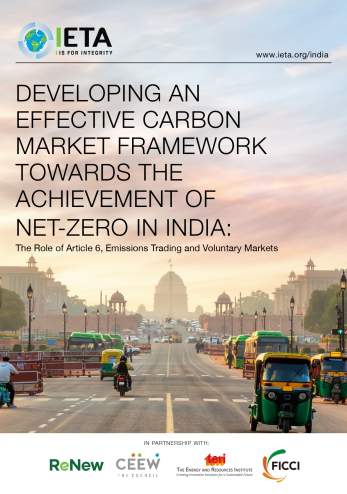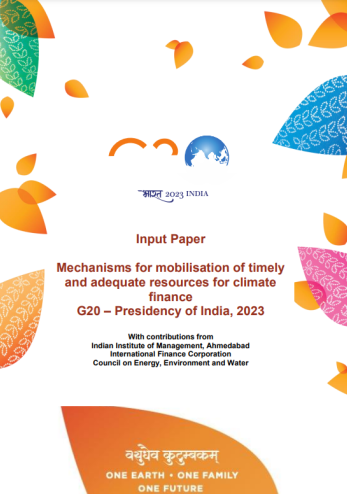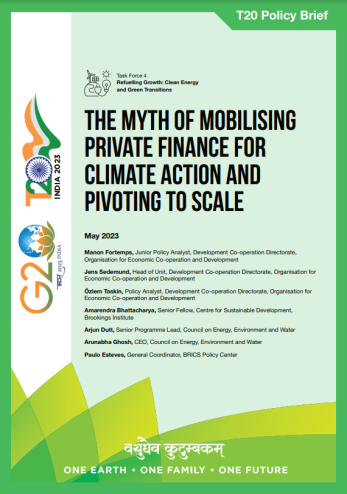Report
Unlocking Access to Finance for Decentralised Energy Solutions
Clean Energy Access Network
April 2015 | Sustainable Finance
Suggested Citation: Clean Energy Access Network. 2015. Unlocking Access to Finance for Decentralised Energy Solutions. New Delhi: Clean Energy Access Network.
Overview
This study, undertaken by CEEW for the Clean Energy Access Network (CLEAN), features business models of various decentralised renewable energy (RE) technologies such as solar lighting solutions, improved biomass cookstoves and solar water pumps. It maps the enterprise and end-user financing mechanisms in place and investigates challenges. It highlights a special case on financing the ecosystem for decentralised RE in India’s seven north-eastern states. Further, the study outlines policies leveraged by organisations to facilitate access to consumer financing. It puts forward a portfolio of interventions that can be implemented by CLEAN to address the financing gaps.

Key Highlights
- Access to enterprise and end-user finance are the key pre-requisites for ensuring widespread uptake of decentralised renewable energy technologies.
- Various sources of enterprise financing such as grants, traditional debt financing from banks, early-stage financing, social impact funders, venture debt, venture equity/venture capital, corporate social responsibility funds, crowdfunding platforms, project call facilities, and carbon financing have been examined in the report.
- Social impact investments in the form of venture debt or capital are a possible source of financing.
- Only a few enterprises have accessed loans and grants. The lesser-known players found it difficult to raise finance in the absence of grants.
- Lack of consumer awareness makes it difficult to distinguish good quality products from inferior ones and banks often don’t lend finances if a consumer is not an existing account holder.
- Lack of sufficient collateral is one of the major hurdles faced when accessing debt from banks.
- The high cost of loans from social impact investors is an impediment.
- Mismatch in expectations between investors and enterprises is another key obstacle.
- Policy uncertainty around subsidies and grid extension has hampered consumer confidence and financing options.
- Banks and microfinancing institutions are reluctant to lend due to trust deficit stemming from poor after-sales service.
Key Recommendations
- Identify financer/investor focused on sectors such as water, health, education, agriculture and encourage them to act as a potential funder for decentralised RE.
- Extend credit support to microfinance institutions to enable them to disburse good quality energy access solutions with a reduced loan size affordable for low-income households.
- Increase the consumer awareness advertising campaigns to spur demand for off-grid energy products in the North-East region. Further, there should be an increase in information flow and financial linkages through network events.
- Educate enterprises about the various mechanism, disseminate information about best practices and stumbling blocks and facilitate enterprise-financer linkages either through one-on-one engagement or via networking event.
- Facilitate training programmes for financers to apprise them about various off-grid RE technologies, existing government policies, how to evaluate viable business models and enterprise needs.
- Sensitise enterprises and banks about schemes tailored to serve rural consumers with low incomes.
Decentralised energy solutions have the potential to ameliorate the bleak energy access situation in India. Access to enterprise and end-user finance are the key pre-requisites for ensuring widespread uptake of decentralised renewable energy technologies.






